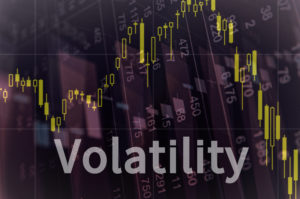Correlation and Forex funds investments must be well understood prior to making an investment. The term “correlation” is used to describe the relationship between two Forex funds investments. Correlation will define how to investments are related to each other. Correlation is measured by calculating the correlation coefficient. The correlation coefficient will always be a ‐1.0 to +1.0. If the correlation coefficient is a negative number, the relationship between the two investments is negative; i.e., if one investment moves up, the other investment moves down. A positive correlation coefficient is a positive number the investments will move in the same direction. If the correlation coefficient is zero, this would mean the two investments are not correlated and an investor can expect them not to move together over time. Ideally and investors portfolio should have a correlation coefficient of close to zero as possible. Forex investment funds will generally have a correlation coefficient very close to zero when compared to other investments.
Judging the Performance of a Forex Managed Account Trader: Is the Track Record the Only Thing that Matters?

Seeking out positive returns.
Investors should take particular note of the Forex manager record of performance; however, this in itself should not be the only reason for choosing a specific Forex trading advisor. The disclosure document should spell out the Forex managed account manager market approach and trading style. This information should be carefully reviewed along with the track record when the investor chooses a particular Forex trader. Strong performance in the short term may be nothing more than good fortune. Positive performance over a long time., and over many trades, may indicate that the trader’s philosophy and style are more robust than his competitors. This is especially true if the track record includes periods of bull, bear, and flat trading ranges. It is important to remember that past performance is not necessarily indicative of future results.
A few metrics to take careful note of when reviewing a track record:
- How long is the track record?
- Is it skill or is the fund manager lucky?
- Are the results sustainable?
- Worst peak to valley drawdown: Could you still make money even if the manager has a positive return for the year?
- Assets under management: Is the manager trading and an insignificant amount of money, or has his track record proved to be scalable and sustainable?
Managed Forex Accounts and Diversified Portfolios

Forex can help decrease risk in an investment portfolio through diversity.
With prudent allocation, a managed Forex account may help reduce the overall risk of a portfolio. A sensible investor should ensure that at least a portion of their portfolio is allocated to an alternative asset that has the potential to perform well when other parts of the portfolio may be underperforming.
Other potential benefits of a managed Forex account may include:
• Historically competitive returns over the longer term
• Returns independent of traditional stock and bond markets
• Access to global markets
• The unique implementation of conventional and non–traditional trading styles
• Potential exposure to as many as one hundred and fifty markets globally
• The Forex market typically has a high degree of liquidity.
If suitable to a client’s objectives, devoting twenty to forty-five percent of a typical portfolio to alternative investments may increase returns and lower volatility. Because alternative investments may not react in the same way as stocks and bonds to market conditions, they can be used to diversify investments across different asset classes, potentially resulting in less volatility and less risk. While it is true that many Forex managed accounts have historically profited, there is no guarantee that an individual managed Forex program will continue to benefit in the future. There is also no guarantee that an individual managed Forex account will not suffer losses in the future.
